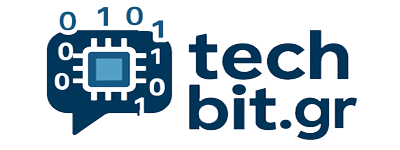he air was thick with the smell of burnt coffee and tension — at least for me. There were thirteen of us sitting in a small café in Moschato, each with our driving instructors,” recalls 27-year-old Thanasis, describing the day of his driving test to TO BHMA. “Everyone else seemed calm — laughing, joking, relaxed — as if this were a mere formality and not an actual examination. I, on the other hand, was gripping my coffee cup with frozen hands, my stomach in knots. I scanned their faces, wondering how they could be so at ease.”
He remembers his instructor leaning in, voice barely above a whisper: “You see all these people, smiling over their coffee? Look at you — your tight lips, the way you’re sighing, looking around like you’re lost. It’s because you haven’t paid a cent. And them? They’ve all already passed. Because they paid.” Thanasis was struck by a powerful sense of injustice and anxiety. “In that moment,” he says, “I knew that if anyone was going to fail, it would be me.”
This kind of story, though vividly told, no longer surprises many in Greece. Despite the constant headlines about road accidents and the country’s reputation for one of the most dangerous road networks in Europe, the practice of “buying” a driver’s license continues largely unchecked.
To Bribe or Not to Bribe
Interviews conducted by TO BHMA suggest a shared experience: nearly everyone who has taken a driving test in Greece has either faced the dilemma of paying a bribe or has been pressured into doing so.
Eighteen-year-old Marios K. sums it up: “As my test approaches, half the people I talk to say I don’t need to bribe anyone if I drive well. The other half warns me that they’ll fail me for the smallest thing — unless I pay.” He hasn’t taken the test yet, but a friend’s cynical advice stuck with him: “Think of it as practice for how to deal with the Greek state.”
“You Can Do It Without Paying”
For 28-year-old Fotini Pantazi, who passed her driving test six months ago, the stress was real. “My instructor mentioned bribery was an option, but he was against it. He told me I could do it on my own, so I tried — and I succeeded.” Still, the pressure was immense. “I honestly believed I’d fail. All my friends had paid to pass. It’s terrifying when you think about how many people get licenses without being properly qualified. And then we wonder why there are so many accidents.”
A similar story comes from 22-year-old Vivian, who also faced the decision of whether or not to bribe. “In Athens, I don’t know anyone who didn’t pay,” she says. “My dad spoke to my instructor, who told him it was up to us — some examiners demand bribes, others don’t.” Vivian chose not to pay. “Even though the examiner almost failed me because I left too much space during a reverse parking maneuver, I still passed.”
An Open Secret
So why does this continue?
Aris Zografos, president of the Greek Driving Instructors’ Association, says the problem stems in part from a group of so-called instructors who act more like brokers than teachers. “They don’t train — they deliver licenses,” he says. “But a driver’s license isn’t a product; it’s a skill. Buying a license is like buying a useless piece of paper.”
Zografos is especially critical of the overlap between trainers and examiners. “This is what keeps the system corrupt,” he explains. “It creates gray zones, and blurs the lines between roles. The instructor should train. The examiner should test. That’s it. Nowhere else in the world is a student evaluated in the presence of their teacher.”
Antonis Mastorakis, vice-president of the Panhellenic Federation of Driving Instructors and head of the Eastern Macedonia and Thrace chapter, adds that much of the misconduct happens during the theoretical portion of the licensing process. He emphasizes that the federation strongly condemns these practices and fully supports the enforcement of Law 4850/2021, which includes transparency measures like video recordings of the practical test.
Unfortunately, although the law has been passed, its implementation has stalled due to pending ministerial decisions.
Source: Tovima.com
VIA: https://www.ot.gr




